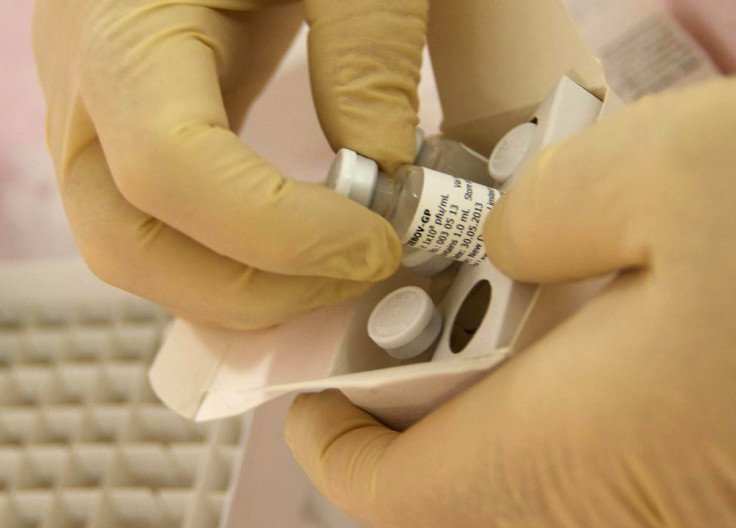Ebola Vaccine Trial Halted Early Due To Joint Pain Symptoms In Patients

The race to develop a viable Ebola vaccine hit a snag Thursday as a clinical trial of a vaccine under development by pharma giants Merck & Co. and NewLink Genetic Corp. was halted a week ahead of schedule, according to a statement by the University Hospitals of Geneva. The human safety trial ended early after four of the 59 patients receiving the experimental VSV-ZEBOV Ebola vaccine complained of experiencing mild joint pain in their hands and feet, said the hospital, which is hosting the trial.
“They are all fine and being monitored regularly by the medical team leading the study,” the hospital said Thursday, according to the Guardian, adding that the symptoms the patients experienced were “benign and temporary.” Vaccinations for the trial will resume Jan. 5. In the meantime, researchers will explore what's causing the side effect, Bloomberg reported.
“The onset of joint pain after infection or vaccination is very common. This happens, for instance, in one out of five vaccinations against rubella,” the hospital said in its statement. “This is a well-documented phenomenon that does not worry specialists. However, it deserves to be carefully studied in order to update the information provided to the volunteers.”
The vaccine was initially created by NewLink in Ames, Iowa, but Whitehouse Station, New Jersey-based Merck committed last month to purchase the rights to it and the two companies will collaborate to guide it through the development process, according to Bloomberg. The trials come at a time of intense efforts by pharmaceutical companies looking to create a vaccine for Ebola, which has ravaged West Africa during the ongoing outbreak, killing 6,388 people and infecting 17,492 as of Dec. 7, according to World Health Organization data.
Sierra Leone has officially seen the most cases of the disease, with 397 cases last week alone. Sierra Leone has had 1,768 deaths in this Ebola outbreak, the worst in history. Liberia has had 3,177, according to the WHO.
© Copyright IBTimes 2024. All rights reserved.




















